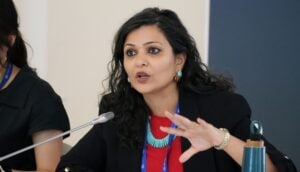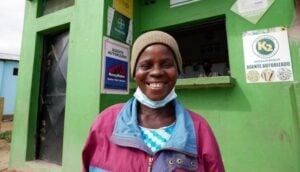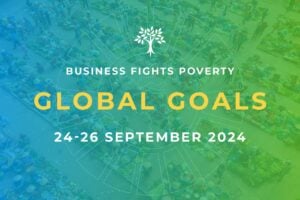By Hanneke Willenborg, VP Global Dishwash, Unilever
Access to clean water is both a lifeline and an opportunity. As more and more communities around the world face water scarcity, the burden of collecting water increasingly falls on the shoulders of women and girls. It’s estimated that globally women spend 200 million hours every single day collecting water – time they could choose to spend in education, working and earning, with their family or contributing to the community.
Achieving the linked development goals of universal water availability and women’s empowerment will require a combined effort that includes the private sector. At Unilever, we believe that business can, and should, be part of the solution to global challenges that affect us all. Not only is there a clear moral case for easing the burden on women, it is also vital to securing the future of our business. We know the positive effects of empowering women creates a ripple effect on families, communities and economies.
Unilever has a history of tackling some of the big issues that society faces. Our hand-dishwash brand Sunlight was developed in 1883 with the aim of ‘easing the burden of women’ and in keeping with our roots, our mission today – to liberate women’s time – is the natural extension of this legacy. There are two ways we can help: through innovative, high-performance products that enable women to reclaim valuable time; and through community-based initiatives that reduce the time women spend accessing water.
Since 2013 we’ve worked with Oxfam to apply this thinking to our Water Centre programme in Nigeria. Local women are trained to run the centres and generate an income. Water is sold at a low cost, as are food and household products, and all proceeds are used for the ongoing maintenance and management of the centres. We have also launched an initiative with NextDrop in India that addresses a different water challenge: water flow is restricted and unpredictable, which leads to time wasted waiting for water. To unlock this time, NextDrop send free texts to alert people when piped water will be available in their homes. It also provides a feedback loop to help utilities repair pipe damage – it is estimated that some 50%-70% of urban piped water is lost through unnoticed pipe damage.
Unlocking women’s time is only one aspect of empowering women – but the impact should not be underestimated. I have met many women around the world with incredible stories about the impact of saving time. One woman’s story in particular that has stayed with me is that of 32-year-old Vanita – a housewife who, like many others, spends hours waiting for water every day. When I asked her what she would do if she had more time, she said, without hesitation, she would sew more to earn more money, and send her children to school.
We are only at the start of our journey, working to help women like Vanita but my hope is that, through our efforts and by working with partners, all women across the globe will have a choice over how they spend their valuable time.









